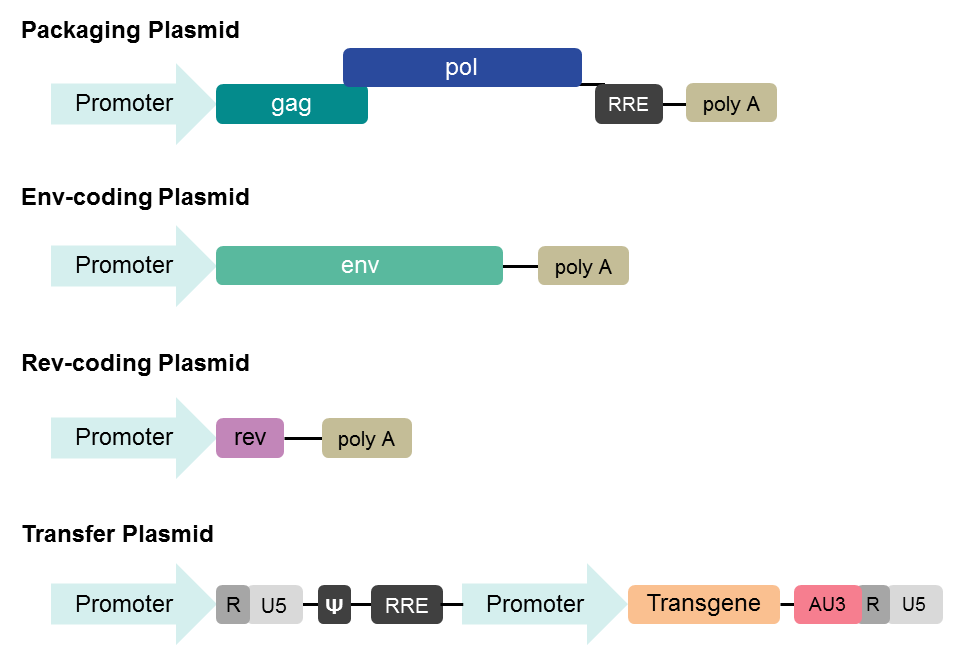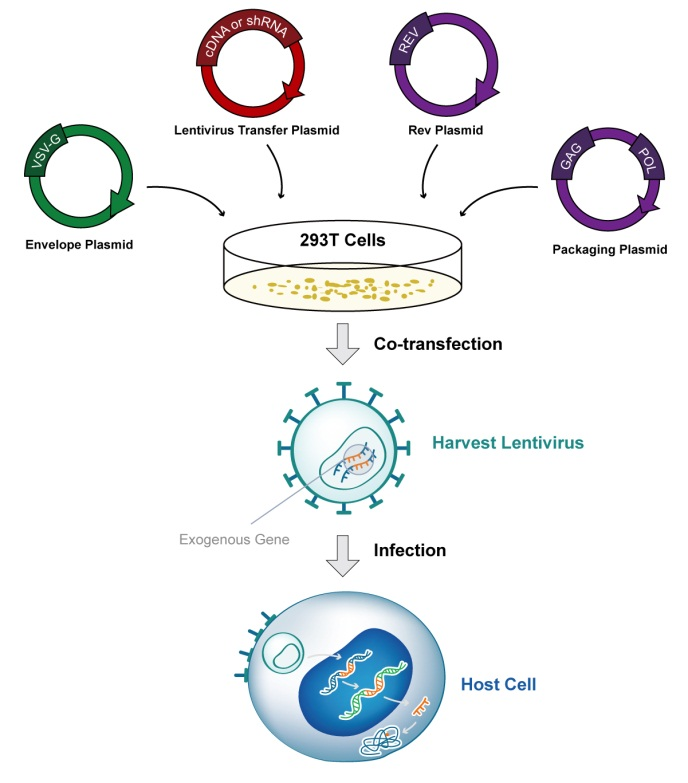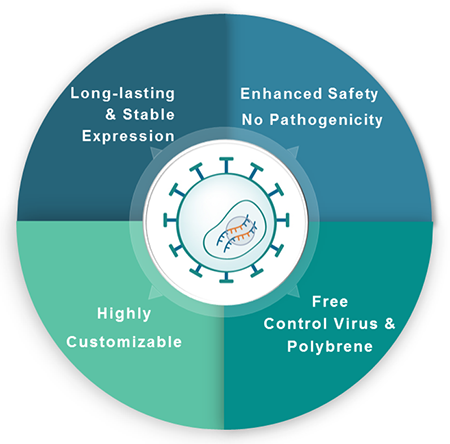Are you intrigued by the fascinating world of gene therapy and the viral vectors that precisely deliver DNA or RNA into cells? Keep reading to explore the remarkable potential of lentiviral vectors (LVs) and learn more about their functions and applications in the life sciences.
The Smart Transformation of Retroviruses
Lentiviruses, a unique type of retrovirus, have become a valuable tool in gene transduction and gene therapy research due to their distinct biological properties. Unlike other viral vectors, lentiviruses can efficiently deliver target genes into hard-to-transfect cells like primary and stem cells. They randomly integrate into the host genome, ensuring stable, long-term gene expression across cell divisions.
Lentiviral vectors contain all necessary genetic elements for gene packaging, transduction, and stable integration - with helper plasmids supporting efficient transcription and RNA packaging. Advances in their design have minimized infection risks, making them safe, effective, and essential in modern biomedical research.

Wild-Type HIV-1 Genome Diagram
The Evolution from Plasmids to Vectors
The essence of Lentiviral Packaging technology lies in its intricate components, which together form the 'vector' for gene delivery:
1. Packaging Plasmid: Provides the structural protein genes necessary for viral replication while removing the envelope gene to ensure that the produced viral particles cannot autonomously replicate or infect other cells.
2. Transfer Plasmid: Carries the carefully selected “cargo” - the target gene or DNA fragment - that will be safely delivered to the target cells.
3. Envelope Plasmid: Supplies the gene for the viral envelope proteins, protecting the viral nucleic acids and determining the host range and infection efficiency.

3rd Generation of Lentiviral Vectors
The principle of lentiviral packaging is complex yet nuanced. The third-generation lentiviral packaging system employs four plasmids transfected into specific cell lines (such as 293T cells). These plasmids carry viral packaging signals, structural protein coding sequences, and the desired gene. Lentiviral particles containing the target gene are ultimately produced through a series of intricate biochemical reactions.

Lentiviral Packaging Principles
Applications of Lentiviral Packaging
With continuous updates to lentivirus packaging technology, it has shown great potential in scientific research and medical fields.
In gene therapy, LVs have been successfully used to treat various genetic disorders and cancers. In regenerative medicine, they facilitate research into stem cell differentiation and tissue repair. Moreover, in basic research, they have become vital tools for gene function validation and disease model construction.
Synbio Technologies | Lentivirus Packaging Services
At Synbio Technologies, we aim to become the most trusted provider of DNA solutions! Our team of experts provides stable and safe virus packaging solutions and technical support. Utilizing the third-generation lentiviral packaging system, we optimize HIV-1-derived lentiviral vectors to enhance their safety. Our services include overexpression, interference virus packaging, stable cell line construction, and library packaging, and screening.

References
【1】Dong, W.; Kantor, B. Lentiviral Vectors for Delivery of Gene-Editing Systems Based on CRISPR/Cas: Current State and Perspectives. Viruses 2021, 13, 1288. https://doi.org/10.3390/v13071288.
【2】Milone MC, O'Doherty U. Clinical use of lentiviral vectors. Leukemia. 2018 Jul;32(7):1529-1541. doi: 10.1038/s41375-018-0106-0.
 DNA Synthesis
DNA Synthesis Vector Selection
Vector Selection Molecular Biology
Molecular Biology Oligo Synthesis
Oligo Synthesis RNA Synthesis
RNA Synthesis Variant Libraries
Variant Libraries Genome KO Library
Genome KO Library Oligo Pools
Oligo Pools Virus Packaging
Virus Packaging Gene Editing
Gene Editing Protein Expression
Protein Expression Antibody Services
Antibody Services Peptide Services
Peptide Services DNA Data Storage
DNA Data Storage Standard Oligo
Standard Oligo Standard Genome KO Libraries
Standard Genome KO Libraries Standard Genome Editing Plasmid
Standard Genome Editing Plasmid ProXpress
ProXpress Protein Products
Protein Products
























